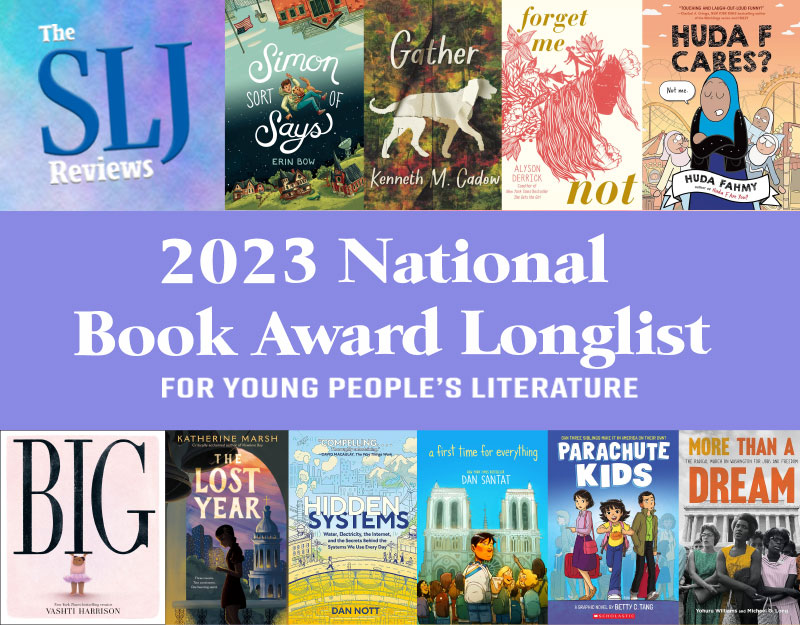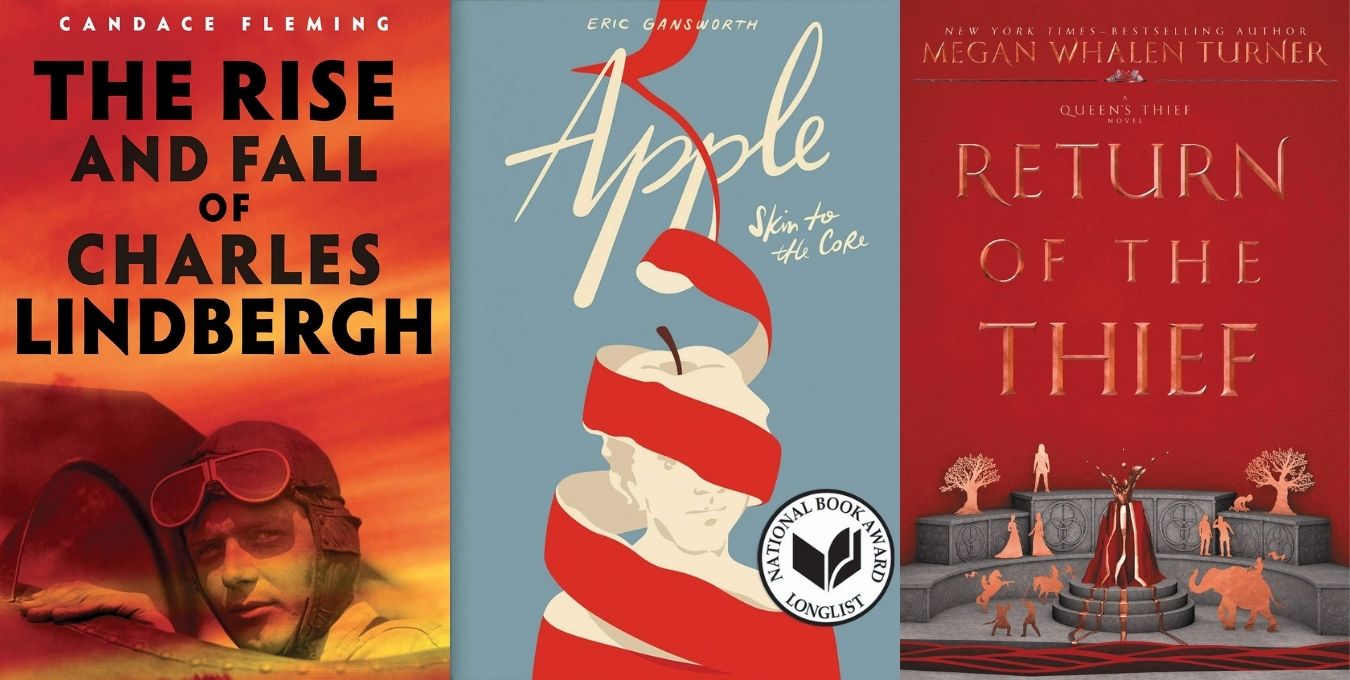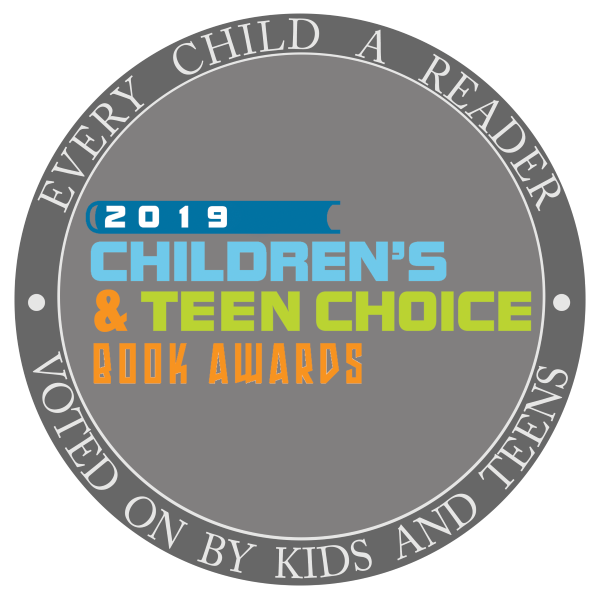The Unlikable Female Character: Thoughts on Middle Grade Literature
While making the rounds through the old internets I came across a recent New Statesman piece entitled Why I want more unlikeable female characters. The premise pretty much boils down to a desire to see “women who are every type of humanity – assholes and all” in our literature and popular culture. And while the piece was not specifically about children’s literature (though Katniss was referenced on the YA side of things) it got me to thinking about what our expectations are when we read children’s books.
First off, let’s back up a bit and think about whether or not children’s books (and we’ll include everything from picture books on up to middle grade novels) are even allowed to have unlikeable protagonists. For the most part, likeability is pretty much in the eye of the beholder. I might cringe at the exploits of Eloise or get all frowny when I look at David’s antics, but for every adult that fails to approve, there are a millions kids crowing and capering along with their antiheroes. A little older and there are unlikeable characters out there, but they’re usually not allowed to stay unlikeable. Some are explicitly evil, like Artemis Fowl, while others are merely annoying/racist like Gilly Hopkins. Very very few are permanently unsympathetic. If they are, it is interpreted as a kind of failure on the part of the author.
ADVERTISEMENT
ADVERTISEMENT
Indeed, when discussing books with my fellow NYPL children’s librarians last year, I was struck time and again by the sentence, “I just didn’t like the main character.” Normally this would be enough to condemn the book right there and then, but that was before I noticed that from time to time, and it IS rare, we aren’t really supposed to like the main characters in our books all the time.
Which brings us to the unsympathetic female character. Two books were published in America in 2014 with such a creation gracing the pages. And in both cases I found myself having a devil of a time convincing my fellow librarians that while normally not liking the main character was a mark against a title, in these books it was the novel’s very strength.
 The first book is an Aussie import that flew almost entirely under the radar: Children of the King by Sonya Hartnett. A divisive book, to say the least, I enjoyed it but was cowed early on by people I knew who complained about its unsympathetic heroine. Cecily , the girl in question, is a spoiled, rather dim little upper class twit that, upon finding herself in the country during WWII, proceeds to steal the book’s spotlight from the far more interesting, if introspective, character of May. “Annoying” is how people describe Cecily and they’re not wrong. It is, however, rather the point of the book. Cecily’s attitude and her thick headedness both make her a good foil for the action taking place around her. In this book Hartnett takes an incredible risk. May, a refugee Cecily’s family takes in, would have been the obvious choice of heroine in most novels. By instead focusing on Cecily the reader is forced to see the world through the eyes of someone shockingly ignorant. Since I read the book I’ve met person after person who has commented on how much they really loved and appreciated this title. I now regret that I didn’t fight for it more last year.
The first book is an Aussie import that flew almost entirely under the radar: Children of the King by Sonya Hartnett. A divisive book, to say the least, I enjoyed it but was cowed early on by people I knew who complained about its unsympathetic heroine. Cecily , the girl in question, is a spoiled, rather dim little upper class twit that, upon finding herself in the country during WWII, proceeds to steal the book’s spotlight from the far more interesting, if introspective, character of May. “Annoying” is how people describe Cecily and they’re not wrong. It is, however, rather the point of the book. Cecily’s attitude and her thick headedness both make her a good foil for the action taking place around her. In this book Hartnett takes an incredible risk. May, a refugee Cecily’s family takes in, would have been the obvious choice of heroine in most novels. By instead focusing on Cecily the reader is forced to see the world through the eyes of someone shockingly ignorant. Since I read the book I’ve met person after person who has commented on how much they really loved and appreciated this title. I now regret that I didn’t fight for it more last year.
 The other singularly unlikeable heroine that comes to mind is one I did fight for. Asti from West of the Moon by Margi Preus is an original. Here we have a character that is sympathetic and yet not someone you particularly love. This was a distinct choice on the part of the author and not some kind of misplaced flaw in the writing. Preus made the conscious choice to have Asti do things that would twist and upset our sympathies for her. She cheats the good and kind, just to rescue herself and her sister. She lies outright and gains passage to America through questionable means. Do the ends justify these means? One of the things that I liked so much about the book was how it dared to ask this very question. Yet like the Hartnett title, the objection lobbed most consistently in the book’s direction was Asti’s unsympathetic demeanor.
The other singularly unlikeable heroine that comes to mind is one I did fight for. Asti from West of the Moon by Margi Preus is an original. Here we have a character that is sympathetic and yet not someone you particularly love. This was a distinct choice on the part of the author and not some kind of misplaced flaw in the writing. Preus made the conscious choice to have Asti do things that would twist and upset our sympathies for her. She cheats the good and kind, just to rescue herself and her sister. She lies outright and gains passage to America through questionable means. Do the ends justify these means? One of the things that I liked so much about the book was how it dared to ask this very question. Yet like the Hartnett title, the objection lobbed most consistently in the book’s direction was Asti’s unsympathetic demeanor.
Is this a quality condemned more consistently in books starring girls vs. books starring boys? Actually, I don’t think so. To my mind, any children’s book that stars a kid who isn’t harboring a secret heart of gold beneath a crusty exterior, just more crust, falls under intense scrutiny. We demand role models for our child readers. Moral complexity upsets that expectation. So as 2015 proceeds apace I’ll be keeping watch for characters that deliberately eschew our hearts. Sometimes, there’s more to them than meets the eye.
Filed under: Uncategorized
About Betsy Bird
Betsy Bird is currently the Collection Development Manager of the Evanston Public Library system and a former Materials Specialist for New York Public Library. She has served on Newbery, written for Horn Book, and has done other lovely little things that she'd love to tell you about but that she's sure you'd find more interesting to hear of in person. Her opinions are her own and do not reflect those of EPL, SLJ, or any of the other acronyms you might be able to name. Follow her on Twitter: @fuseeight.
ADVERTISEMENT
ADVERTISEMENT
SLJ Blog Network
The Moral Dilemma of THE MONSTER AT THE END OF THIS BOOK
K is in Trouble | Review
Fighting Public School Book Bans with the Civil Rights Act
ADVERTISEMENT








Let me add to your shot-out for these two books, favorites of mine from last year.
In Children of the King, I was blown away by Harnett’s skill at giving us the story through Cecily’s point of view. I thought it was absolutely brilliant. I’m not sure I’ve ever seen someone do that in a children’s books (please correct me if I’m wrong) — making your POV character dim and so limited, one that readers could cringe at and also occasionally say, “maybe I’ve thought/done/acted that way” at one time or another. Absolutely amazing writing, I thought.
And then there is , Preus’s Asti (not Gerta:). I thought she was also an amazing character and I thought her complexity was wonderfully rendered. West of the Moon was among my top Newbery choices and, while I’m thrilled with the real decisions, I do hope that West of the Moon stays on people’s radar.
Children of the King and West of the Moon are both BoB contenders. Hope you all come to cheer them on next month!
Asti! Corrected. Not sure where my head was. Now I’m curious as to where I got Gerta. Guess I better reread the book!
When I saw the blog title this morning I just assumed you’d be talking about Rose from RAIN REIGN. In my mind she is much more unlikable than Asti from WotM. Asti’s character isn’t so much unlikable as stuck in a situation in which she must make impossible choices. Rose is simply annoying. So much so that I found it very difficult to feel any sympathy for the character.
I would argue though that Martin did not set out to make Rose unlikeable. Different, yes, but ultimately I think you’re supposed to like her (and, from the reviews I’ve read, many do). Asti, in contrast, is fully in control of her faculties and with deliberation does the wrong thing to achieve her goals. Authorial intent is maybe the point I’m most interested in here.
Perhaps there is something about characters named “Cecily,” because your description here of CHILDREN OF THE KING made me think of one of my favorite books of 2012, J. Anderson Coats’s THE WICKED AND THE JUST, in which a spoiled 13th-century English girl (Cecily!) learns the hard way that sometimes locals (the Welsh, in this case) will rise up against their oppressors (the English in general, and Cecily’s family in particular). Coats does a brilliant job portraying the world through Cecily’s eyes, and when that world falls apart around her, it’s devastating. Such a good book!
Even though she’s written for a bit younger audience, I thoroughly disliked Junie B. Jones, especially in the earlier titles. As the series progressed, I think she became more “likeable,” with fewer rough edges. Sort of. Maybe. But despite her non-likeableness I definitely admired Park for giving us a character who flew in the face of our dreamy attitude about children and our desire to group them into the village of SweetandInnocent. There was a lot about Junie that was off-putting, and in many ways that made her more authentic.
I came up against this a lot when talking to people about WEST OF THE MOON, which I love. Otherwise reasonable adults with graduate degrees decided that the book lacked literary merit (I wish I were joking about this) because the protagonist isn’t “nice.” I’m not entirely sure how to combat this. At the time, I’d ask why likeability mattered and people usually weren’t able to respond very well to that question, or they’d say something about the character not being a great example for kids. But, this has nothing to do with the quality of the narrative and, to be frank, demonstrated an ignorance about literature that was disappointing.
It also indicates an investment in the cult of niceness (and expectations of niceness) for girls, in particular, that can be so frustrating. It makes me wonder if they also tell random women and girls to smile just because that woman/girl’s facial expression doesn’t meet their expectations. /rant (yeah, this is a touchy topic for me sometimes)
What you’ve done here is hit upon the exact thing that I too ran into with that book. My sole comfort is that it has better prepared me for future arguments with similar books. If we can argue why not being “nice” isn’t a flaw in the narrative (unless, of course, it’s a case of the writer attempting and failing to make that person nice) then we’re one step closer to a strong defense.
I’ve been trying to get people to reflect on the reasons why they think it’s so important for these characters to be likeable – or rather, why they are so invested in the idea that these characters need to fit this mold. It’s hard to do without sounding like the teacher I used to be. 🙂
Still, it’s frustrating. I want to expect more out of people. But, I frequently say that I think librarians are too nice. I came to the profession from a more verbally aggressive discipline/background and sometimes still have to remind myself that many of my colleagues don’t react as positively to disagreement as I do. I suspect some of this is related to the way (mostly white middle class) women are socialized in our society.
And so, when I think about the ways this trait affects the way(s) people read, I intellectually understand the desire for nice female characters. However, while I understand it, I’d like to see people be more self-reflective about their own preferences and biases, and the ways that those preferences and biases affect their readings of characters whose lives are different from their own.
Two of my very favorite books from last year! Cecily’s relation to May was another layer in the exploration of power and what happens to children, who typically have none. May was someone she could try to lord it over and feel in control of something in her life. Astri was just doing what needed to be done. If she had felt good about it, I might have disliked her. Giving away her mother’s silver broach earned my sympathy.
Mary Lennox in The Secret Garden is imperious and unlikeable at the beginning of the story. Although we understand that her upbringing is responsible for her attitudes, it’s difficult to read her dismissive statements about anyone of a lower class than hers, and her treatment of her servants in India is appalling. But this was my favorite childhood book. I stuck with Mary even though I didn’t much like her. She does change as the story progresses and becomes a more likeable character, as does Coiln, the other unsympathetic character. On the other hand, too-perfect Dickon who never apparently loses his temper or has a selfish moment can be plain annoying!